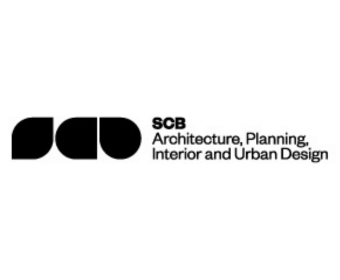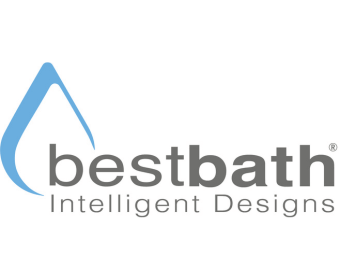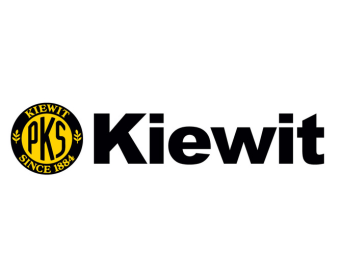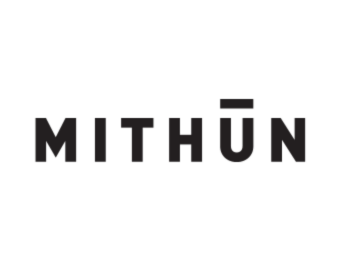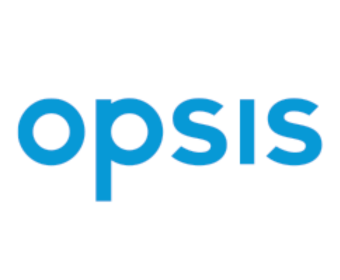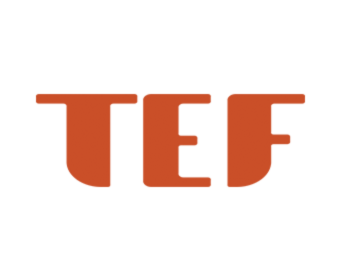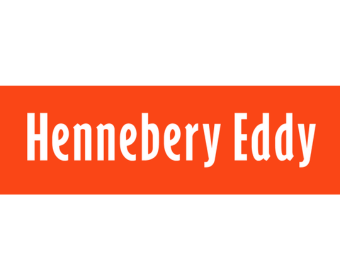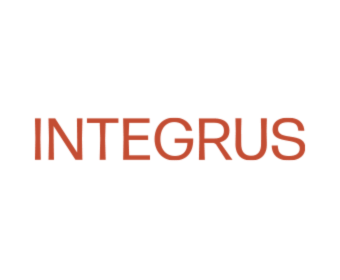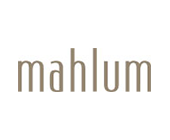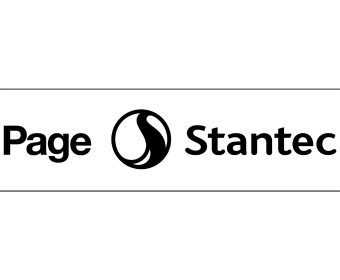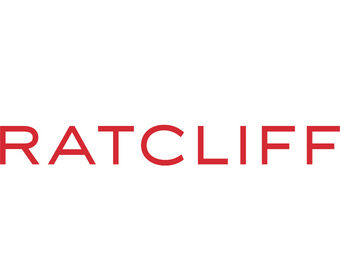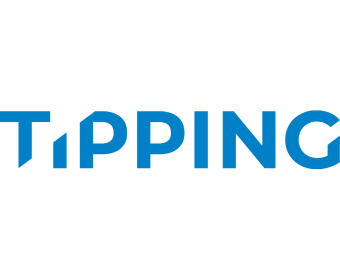- Integrated Planning
Integrated Planning
Integrated planning is a sustainable approach to planning that builds relationships, aligns the organization, and emphasizes preparedness for change.
- Topics
Topics
- Resources
Resources
Featured Formats
Popular Topics
- Events & Programs
Events & Programs
Upcoming Events
- Community
Community
The SCUP community opens a whole world of integrated planning resources, connections, and expertise.
- Integrated Planning
Integrated Planning
Integrated planning is a sustainable approach to planning that builds relationships, aligns the organization, and emphasizes preparedness for change.
- Topics
Topics
- Resources
Resources
Featured Formats
Popular Topics
- Events & Programs
Events & Programs
Upcoming Events
- Community
Community
The SCUP community opens a whole world of integrated planning resources, connections, and expertise.
Regional Conference
Virtual Pacific Region Fall Series | COVID + CRUCIBLE: HIGHER EDUCATION FACES FALL 2020
October 9, 2020- Event Home
- Program
- Scholarship
- Corporate Visibility
- Speaking Resources
Access session recordings on the program page.
COVID + CRUCIBLE: HIGHER EDUCATION FACES FALL 2020
Summer-Fall Series
(5 Sessions – August 14, August 28, September 11, September 25, October 9)“Are Universities Going the Way of CDs and Cable TV?”
“What’s the Value of Harvard without a Campus?”
“Higher Ed’s Reckoning with Race.”
“Will the Coronavirus Forever Alter the College Experience?”These are just a few headlines that reveal the anxious and uncertain state of higher education. But colleges and universities were having their moment of reckoning long before COVID hit, disrupting how we go about our lives (including the campus experience) and accelerating impending change.
Curricular and pedagogical changes have long-demanded that the campus evolve and flex for relevancy and value. How does the campus matter in the mobile, connected, and often-virtual world of work and community? Systemic racism and its attendant violence—a pandemic in its own right—has not retreated during COVID, but rather, risen with a commensurate sense of urgency. What is the role of higher education, pre-COVID and moving forward, to address inequity? As colleges and universities cautiously and courageously re-open, how do we adapt space safely, nimbly, and mindfully, in real time? Quite simply, what do we do? How do we deliver on one of the core promises of higher education—the discovery, creation, and sharing of actionable information— to turn crucible into opportunity?
SCUP’s Pacific Region Fall 2020 Series explores integrated planning for change via five core topics that are shaping higher education as colleges and universities reopen. We hope you’ll join us in discussion this Fall!
Registration is available for single sessions, or purchase the full series at a discounted rate. Full conference registrants will also receive a closing white paper at the end of the series. The white paper will summarize lessons learned in response to COVID-19 and best practices for moving forward in a post-pandemic world.
SESSION 1: AUGUST 14, 2020, 10-12 PM Pacific
Where are We? Where Do We Go? Moving From Reactivity to Creativity During COVID
Recording available on the program page.Internationally known futurist, researcher, writer, speaker, consultant, and teacher Bryan Alexander kicks off the SCUP Fall 2020 series by exploring the core issues, challenges, and opportunities shaping higher education during COVID. His focus on how technology transforms education will set the tone for a lively discussion—from tactical to blue sky—among institutional leaders about reopening this Fall. Join us for a roundtable discussion with thought leaders who are adapting strategic plans in ways that are creative and authentic to their institutions, demographics and financial resources.
SESSION 2: AUGUST 28, 2020, 10-12 PM Pacific
Curriculum Redesign: Evolving Practices for Virtual and Physical Learning
Recording available on the program page.How do we move from “crisis teaching” to the mindful redesign and thoughtful delivery of curriculum across the range of models, from in-person to hybrid to entirely virtual? What kind of experience are we trying to uphold? How are we solving for the kinds of hands-on spaces that support research or industry partnerships? Join us to explore best practices and lessons learned from institutional leaders and professionals across the Pacific Region.
CEUs available. See program for more details.
SESSION 3: SEPTEMBER 11, 2020, 10-12 PM Pacific
Critical Race Theory Workshop: Hurdles and Hopes for Practicing Racial Equity in Design
Session resources available on the program page. This session was not recorded.Educational settings are not neutral—planning and design can reproduce or address inequities in powerful ways. While adopting inclusive approaches opens new possibilities, it can also present real challenges. Confronting these hurdles is key to practicing equity in design, particularly in the context of the social pandemic of systemic racism. Join us for a workshop exploring the common challenges to practicing racial equity while working to understand and transform.
SESSION 4: SEPTEMBER 25, 2020, 10-12 PM Pacific
Adapting the Campus: Thoughtful Planning + Reshaping Physical Space in Real Time
Recording available on the program page.The pandemic has compelled institutions to quickly re-think space planning to address health and safety concerns during the pandemic. How are we restructuring our facilities planning teams? What are the implications of financial re-planning? What are best practices for the deployment of various live/learn models? Join us as we attempt to answer these questions and many more.
SESSION 5: OCTOBER 9, 2020, 10-12 PM Pacific
Lessons Learned From the Fall 2020 Reopening—What Will Stick?
Recording available on the program page.During the Fall of 2020, institutions across the Pacific Region will develop and implement protocols for reopening. What will stick? What’s been merely disruptive versus an acceleration of much needed changes as higher education evolves to better serve students? How are new approaches supporting an institution’s core mission? This session will explore lessons learned in response to COVID and best practices for moving forward in a post-pandemic world.
Headlines Referenced Above
- Michael D. Smith. “Are Universities Going the Way of CDs and Cable TV?” The Atlantic, June 22, 2020.
- Ezra Marcus and Jonah Engel Bromwich. “What’s the Value of Harvard without a Campus?” The New York Times, June 11, 2020.
- Scott Carlson and Michael J. Sorrell. “Higher Ed’s Reckoning with Race.”The Chronicle of Higher Education, June 15, 2020.
- Jon Marcus. “Will the Coronavirus Forever Alter the College Experience?” The New York Times, April 23, 2020.
Connect with your community!
Don’t forget to use the SCUP Slack Community and post on the Pacific Conference Channel. More of a social butterfly? Use #SCUPPA20 when you post.Do you have more questions? Check out the FAQ.
Regional Sponsors
Program
How to Access Recorded Sessions
Registrants receive free access to the sessions they are registered for. Recordings are also available for purchase.
Conference attendee?
- Log in. (Note: Use your existing SCUP login. If you do not know your login information click on “forgot your password” on the login screen. Please do not create a new account.)
- Browse the program below and click the Access Recorded Session button.
Not a conference attendee?
- Complete series** ($249/members; $425/nonmembers) Add to cart.
- Individual sessions ($65/members; $119/nonmembers)
- Select an individual session(s) from this list of recordings, click the session’s title, then click the purchase button. You will need to log in or create an account if you are new to SCUP.
** Note: There is no recording for the September 11 session.
SHOW: All Sessions Workshops Tours Planning Institute WorkshopsFriday, August 14, 202010:00 am–12:00 pmWhere are We? Where Do We Go? Moving from Reactivity to Creativity during COVIDPresented by: Bryan Alexander, Internationally-known Futurist, Researcher, Writer, Speaker, Consultant, and Teacher | Diane Stephens, Associate Vice President for Academic Resources and Planning, California State University, Northridge | Elliot Felix, Founder and Chief Executive Officer, brightspot strategy | Wendy Hillis, Assistant Vice Chancellor and Campus Architect, University of California, Berkeley
Moderated by: Kim Patten, Partner and Higher Education Practice Leader, Steinberg Hart
Institutions are adapting their strategic plans, layering the impacts of technology, and thinking towards the future during the COVID-19 pandemic. In order to provide students with a quality education, institutions must learn, test, and implement changes quickly. This session will explore the core issues, challenges, and opportunities that are shaping higher education and uncover the breadth of adaptation that institutions must undertake in this time of disruption. Come learn how to better prepare to meet your institution’s current needs and future challenges by sharing implementable ideas and insights with your peers.
Learning Outcomes:
- Describe how to adapt your strategic plan and identify who to include in the process and where to focus your efforts.
- Identify options for in-person and remote learning as well as re-shaping environments to adjust for new curricula.
- Explain how to more effectively use technology for both education and work as well as planning and preparing for fall 2020.
- Educate others on practical and easily implementable strategies for planning around COVID-19.
Challenges: COVID-19 Response and Planning
Planning Types: Information Technology Planning, Strategic Planning
Tags: COVID-19, Disruptive Change, Learning Technology, Online Learning, Response Planning, SCUP 2020 Pacific Regional Conference, TechnologyDid you attend this session? Leave an evaluation!
InstructionsFriday, August 28, 202010:00 am–12:00 pmCurriculum Redesign: Evolving Practices for Virtual and Physical LearningPresented by: Jeffrey Ashley, Professor of Chemistry and SCUP Fellow, Thomas Jefferson University | Scott Montemerlo, National Program Manager, Education, Teknion | Peter Hendrickson, Associate Vice Chancellor, Design & Construction, University of California-Los Angeles | Royce Smith, Dean, Montana State University – Bozeman | Leesa Beck, Director of Summer Sessions, University of California-Santa Barbara
Moderated by: Jennifer Milliron, Principal, LMN Architects
Due to the COVID-19 pandemic, institutions have been making pedagogical changes that will impact the long-term future of higher education. This session will explore how institutions can move away from “crisis teaching” and towards a mindfully-redesigned and thoughtfully-delivered curriculum spanning a range of models, from virtual to hybrid to in-person learning. Institutions must quickly adapt their curricula in order to provide quality education in a post-COVID era. Come learn how you can prepare your institution to meet current needs and future challenges in learning through sharing ideas and experiences with your peers.
Learning Outcomes:
- Describe the range of virtual, hybrid, and in-person curriculum models institutions are testing and implementing in Fall 2020.
- Discuss options for remote and in-person learning and how to re-shape physical learning environments to adjust for new curricula.
- Identify ways in which institutions can maintain a sense of culture and community both virtually and in safe campus spaces during a pandemic.
- Explain how institutions can adapt their curricula in response to COVID in a way that will benefit higher education long term.
Continuing Education Units
AIA LU 2.0 Unit (SCUPP20P001)
AICP CM 2.0 UnitYou can earn Continuing Education Credits (CEUs) by participating in this live session or by watching the recording and taking a short quiz. Learn more here.
Challenges: COVID-19 Response and Planning
Planning Types: Academic Planning, Campus Planning, Information Technology Planning
Tags: COVID-19, Learning Environments, Online Learning, Response Planning, SCUP 2020 Pacific Regional Conference, Teaching and Learning
Friday, September 11, 202010:00 am–12:00 pmCritical Race Theory: Hurdles and Hopes for Practicing Racial Equity in DesignPresented by: Amara H. Pérez, Social Justice Educator, Community Organizer, Community-Engaged Researcher, and Critical Strategist, University of North Carolina at Greensboro | Rebecca Ocken, Planning Manager, Office of Planning and Capital Construction, Portland Community College | Derrick McDonald, Portland Community College | Rachel Schopmeyer, Architect, Hacker
Educational settings are not neutral. When we discuss the ways in which planning and design can reproduce inequities we are better able to understand and practice new approaches for creating equitable spaces. This interactive session is a deep dive into examining common challenges to practicing racial equity while working to understand and transcend these hurdles. We must adopt inclusive approaches to designing campus spaces that improve student outcomes and wellbeing. Come learn methods and tools that will open up new possibilities and allow you to overcome challenges to practicing equity in design at your institution.
Learning Outcomes:
- Define Critical Race Theory (CRT) as an approach to equity and inclusion in planning and design.
- Identify how planning, design, and educational settings can reproduce inequities and hinder student wellbeing.
- Use a critical race spatial lens to examine and transcend common challenges to practicing racial equity.
- Educate others on practical strategies for racial justice in design.
At the request of the presenter this webinar was not recorded to ensure a safe environment for open conversation.
Continuing Education Units
AIA LU/HSW 2.0 Unit (SCUPP20P003)
AICP CM 2.0 UnitYou can earn Continuing Education Credits (CEUs) by participating in this live session. Learn more here.
Planning Types: Campus Planning
Tags: Diversity Equity and Inclusion (DEI), Facilities Design, Facilities Planning, Learning Environments, Racial Equity
Friday, September 25, 202010:00 am–12:00 pmAdapting the Campus: Thoughtful Planning + Reshaping Physical Space in Real TimePresented by: Lakshmi Chilukuri, Provost, Sixth College, University of California, San Diego | Walt Kanzler, Senior Director of Design and Development Services, University of California, San Diego | Robert Clossin, Director of Campus Planning, University of California, San Diego | Thom Greving, Principal and Regional Design Director, HKS | Upali Nanda, Principal and Firmwide Director of Research
The University of California, San Diego (UCSD) is implementing its Long Range Development Plan (LRDP) to transform the physical environment into a premier destination for students, patients, faculty, staff, and the community. While this vision remains intact, the pandemic has tested campus resiliency. We will share how UCSD is navigating the fall semester and its overall vision for the campus, including opening a living and learning neighborhood to enhance student life and success in the midst of the pandemic. Come learn about this project’s guiding principles, research-based design, lessons learned, and best practices for adapting to a changing environment.
Learning Outcomes:
- Explain how a detailed LRDP can guide your campus’s physical development and serve as a catalyst for productive change.
- Discuss how thoughtfully-designed campus spaces for living, learning, and interacting can transform the student experience and the local community.
- Identify key design considerations for integrating a new living and learning neighborhood into an existing campus lifestyle.
- Describe how to apply data, research, and best practices to create resilient living and learning environments.
Continuing Education Units
AIA LU 2.0 Unit (SCUPP20P004)
AICP CM 2.0 UnitFriday, October 9, 202010:00 am–12:00 pmLessons Learned From The Fall 2020 Reopening - What Will Stick?During the Fall of 2020, institutions across the Pacific Region are developing and implementing reopening protocols. What will stick? Which effects of the pandemic have been merely disruptive and which effects have accelerated much needed changes as higher education evolves to better serve students? How are new approaches to in-person and virtual learning supporting an institution’s core mission? This session will explore lessons learned in response to COVID-19 and best practices for moving forward in a post-pandemic world.
Learning Outcomes
- Explain why some protocols institutions are adopting in response to COVID-19 will stick around for the long term.
- Describe how the pandemic has accelerated pedagogical changes and what these changes mean for the future of higher education.
- Explain how the pandemic has opened up new opportunities to make campuses more resilient and rethink living and learning spaces.
- Identify types of space usage and learning methods that will become “things of the past” post-pandemic.
Scholarship
Award
Scholarships will cover the cost of registration. Preference will be given to members in the region.
Eligibility
To be eligible for the Conference Scholarship, applicants must provide the following:
- Demonstrate financial need (one paragraph self-statement)
- Explain desired benefits from attendance (one paragraph)
- Optional: A brief statement of support by the institution, such as a supervisor (one paragraph)
Application Review
The Regional Council Regional Chair will review applications and provide recommendations (ranked based on application criteria). Award recipients will receive a waiver of the conference registration fee.
Application Deadline
Monday, August 24, 2020
Notification of Selection
Scholarship applicants will be notified of award status on Wednesday, August 12, 2020 or Wednesday August 26 if applied after August 12, 2020.
- Topics
- Topics







